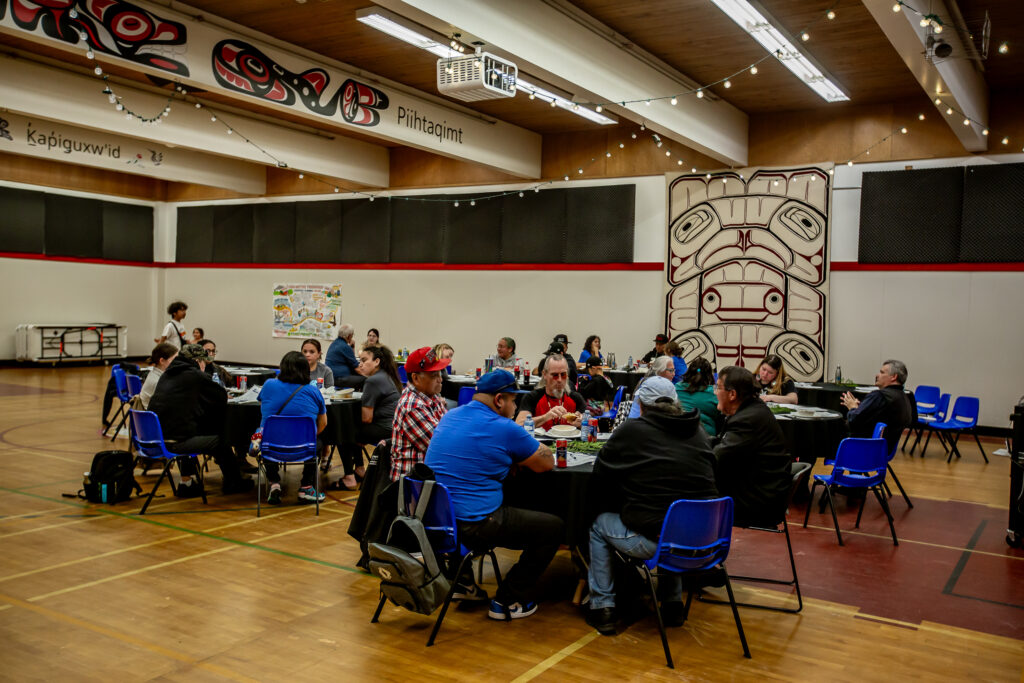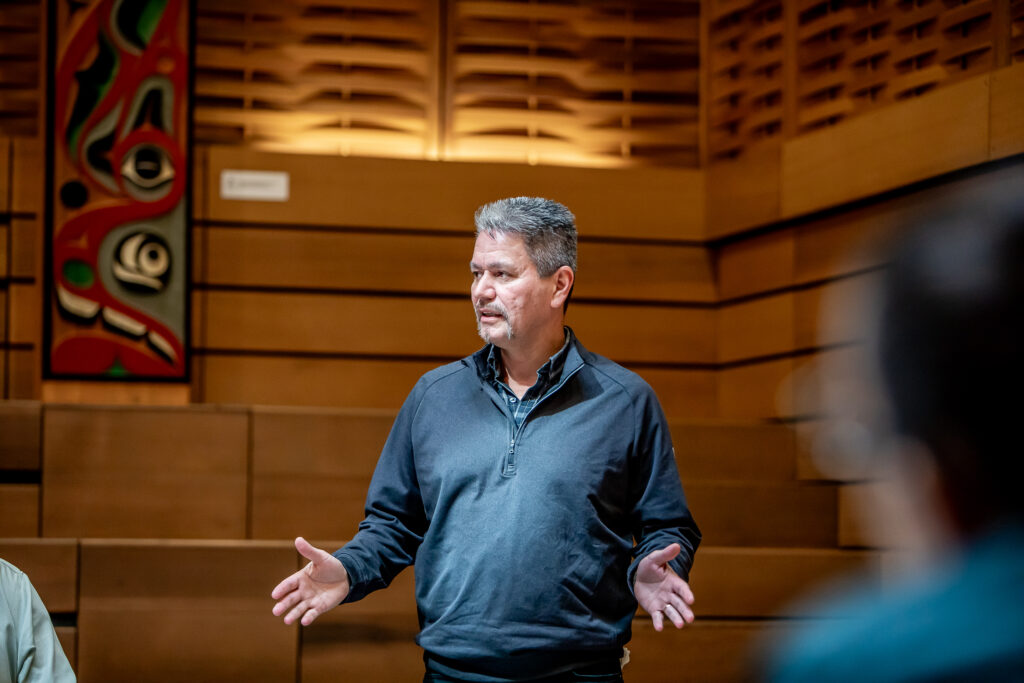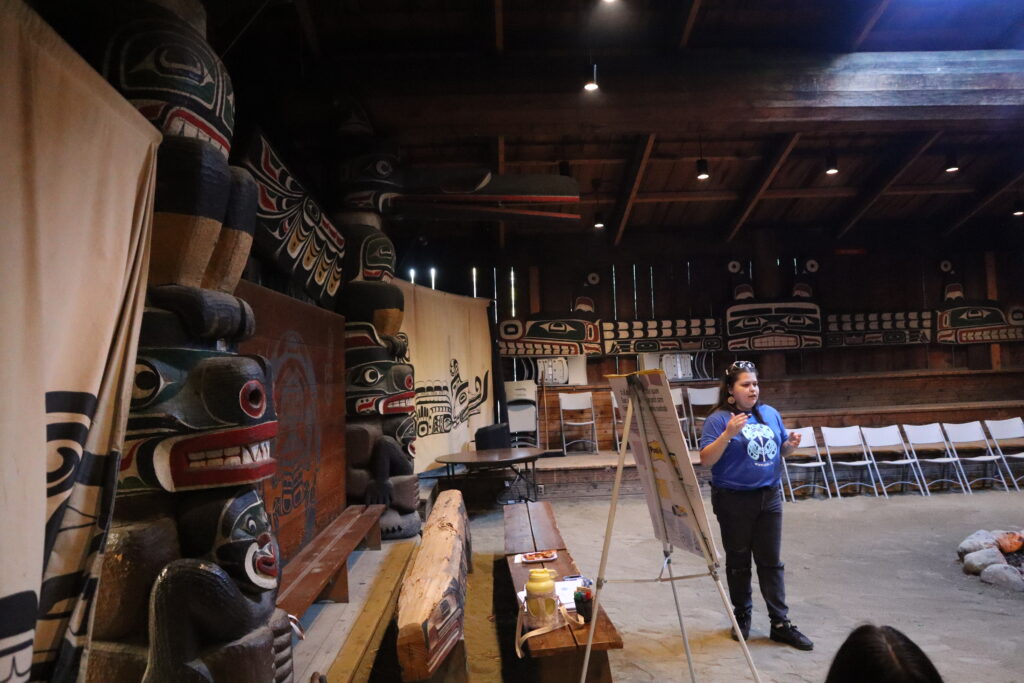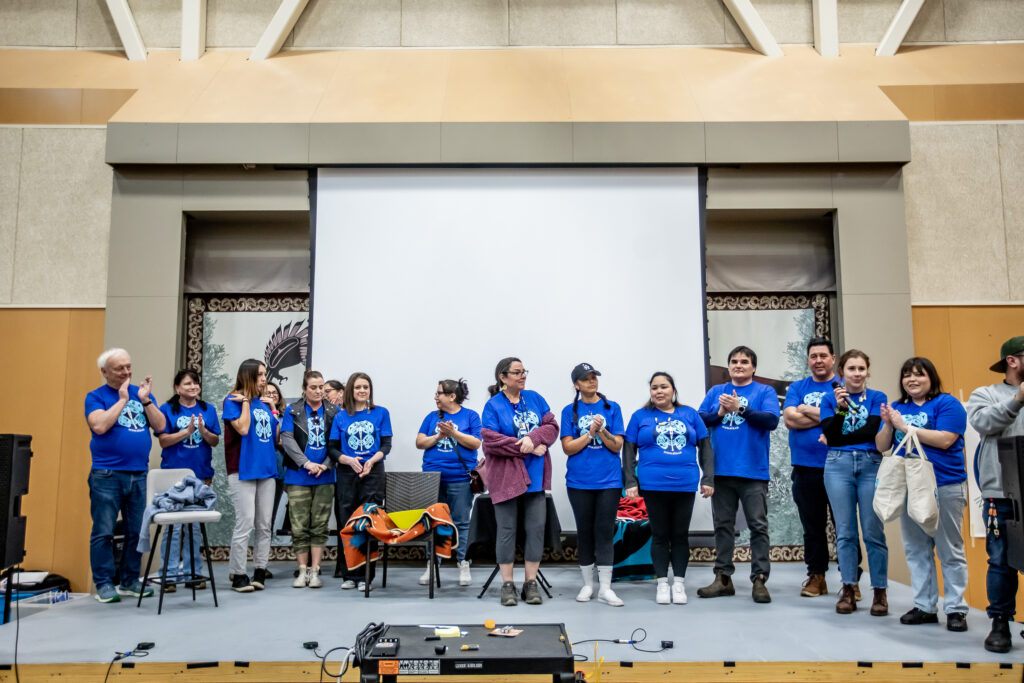At our recent SIIA-CIRCLE Gathering, we had the opportunity to discuss what it might look like working with our Indigenous Guest community on our territory in a multi-jurisdictional model. This means that people residing on our territory might have other laws they are covered by through their own Nation(s).
Many have highlighted that we (as both Indigenous Nations and the federal/provincial governments) are moving forward into a far more complex legal landscape. However, we know that our people have always navigated multi-jurisdictional spaces and had ways to do it in respectful ways. We see this today in families who have connections to multiple nations and manage to raise their kids in ways that respect and honor all the teachings that make them who they are.
Our board speaker, Bruce Underwood, has explained this idea this way:
“If anything bad happened on our territory, we would be the first responders. We would make sure that we’d take a child into our [Longhouse] and make sure that they were fed, warm, and safe.
Bruce’s story highlights that within our new system, we would prioritize ensuring a child is safe and cared for through our own teachings here on our territory. However, if they have another law covering them (that can ‘claim them’) then that law will prevail.
This approach aligns with Jordan’s Principle*, which is a value embedded within our law. Jordan’s Principle outlines how our approach to service is “Serve the family first, figure out funding after.”





* Jordan’s Principle was named after Jordan River Anderson, a young boy from Norway House Cree Nation in Manitoba who was born in 1999 with multiple disabilities. He lived over two years in a hospital because federal and provincial governments could not agree on who would pay for his at-home care. The reason for this is that federal and provincial/territorial governments could not agree on which government should pay for services to First Nations children so they typically did not provide the service until they can sort out the payment issue. Unfortunately, Jordan died at the age of 5 before he could experience living in a loving home. In response to Jordan’s tragic life, Jordan’s Principle is now enshrined in law in Canada.
For more information about Jordan’s Principle, see: https://fncaringsociety.com/jordans-principle/honouring-jordan-river-anderson